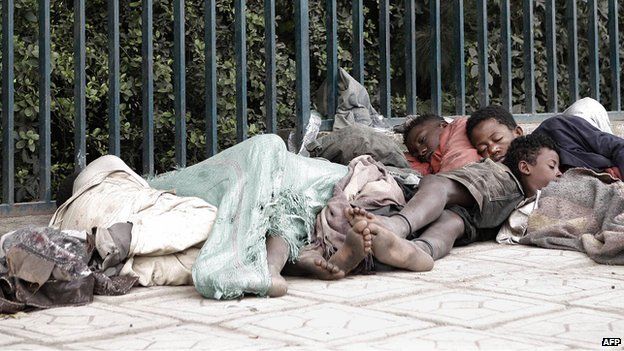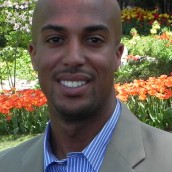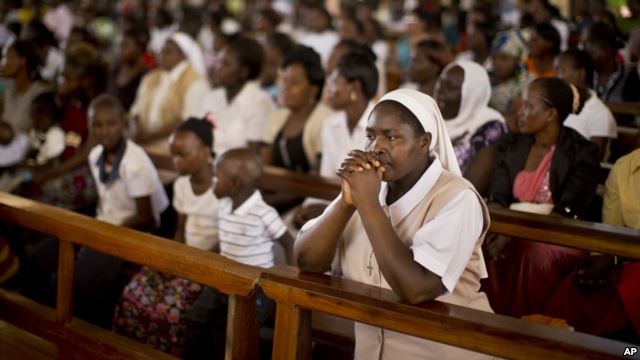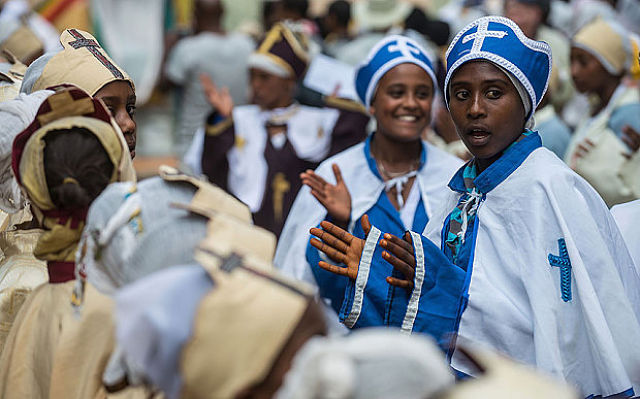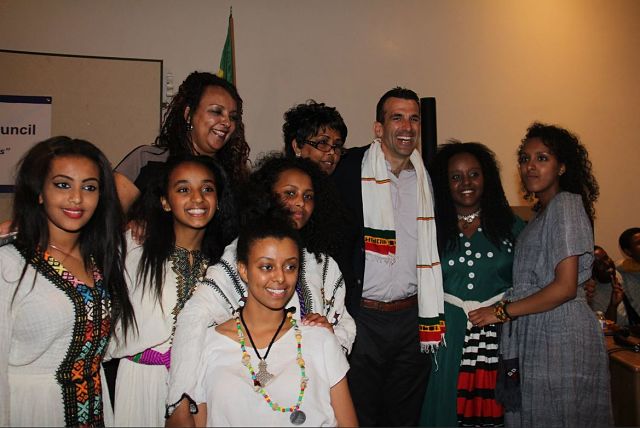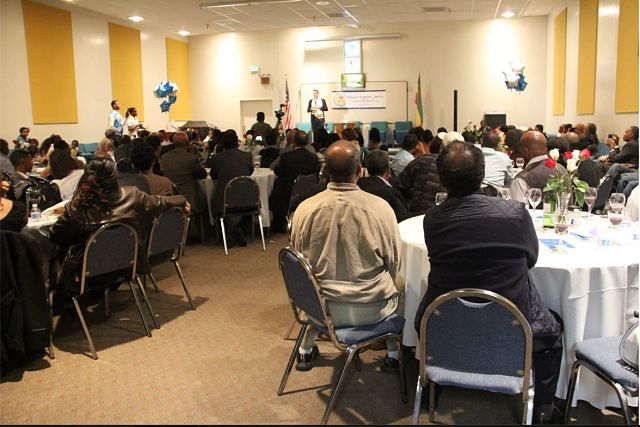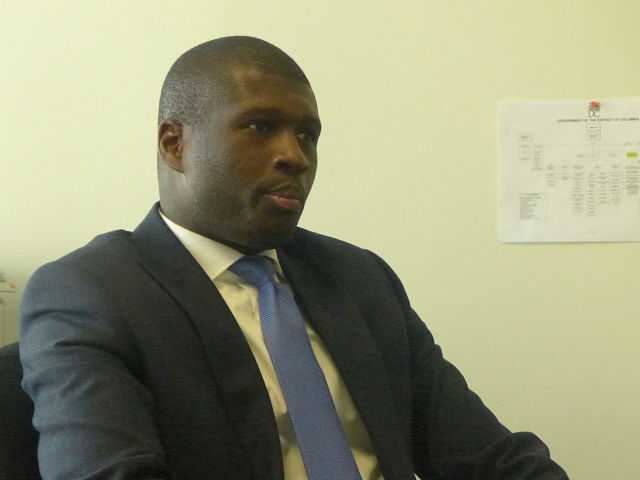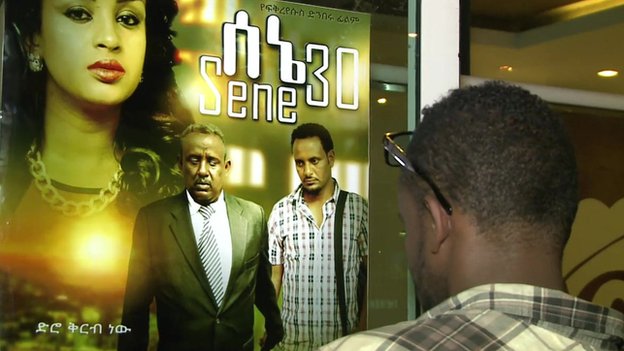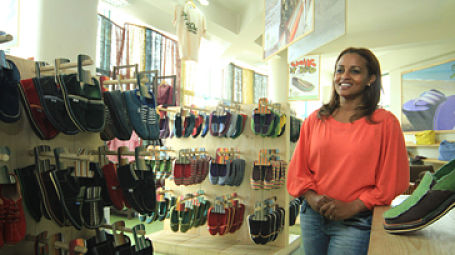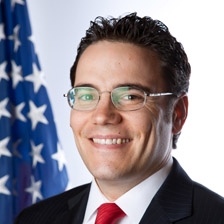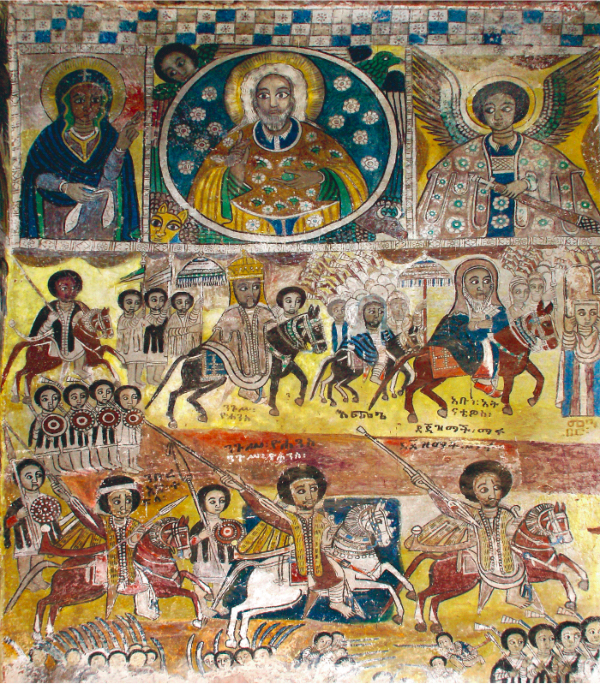Tadias Magazine
By Tadias Staff
Updated: Thursday, April 9th, 2015
New York (TADIAS) — Professor Donald N. Levine, who passed away on Saturday, April 4th at the age of 83, is being remembered by his friends in Ethiopia and the Diaspora as a beloved Ethiopianist, educator, sociological theorist, author, collaborator, advocate, mentor, sensei and friend.
In addition to his well-known credentials as a respected scholar of Ethiopian studies, Levine was also an Aikido sensei and the co-founder of the first Aikido dojo in Awasa, Ethiopia.
Below are reflections and photos sent to us from Don Levine’s friends and colleagues in the U.S. and Ethiopia. Feel free to send us your own reflections at staff@tadias.com. We’ll keep this page updated.
From Tesfaye Tekelu
Aikido Ethiopia & Awasa Youth Campus
“Don was a mentor, a teacher, a sensei and in many ways a father figure to me. I have known him for more than 12 years and he has taught me, trained me, supported me like a father would a son. He was the architect of our project. He helped me found Aikido Ethiopia and the Awasa Youth Campus (Action for Youth & Community) and supported and guided us until the last day of his life. He loved our country and the people, and he was talking about Ethiopia days before he passed away. We will cherish his work and continue working on what we started in our country. Rest in peace, Ethiopiawiwu ye Selam Arbegna.”
From Dag Andargachew
Washington, D.C.
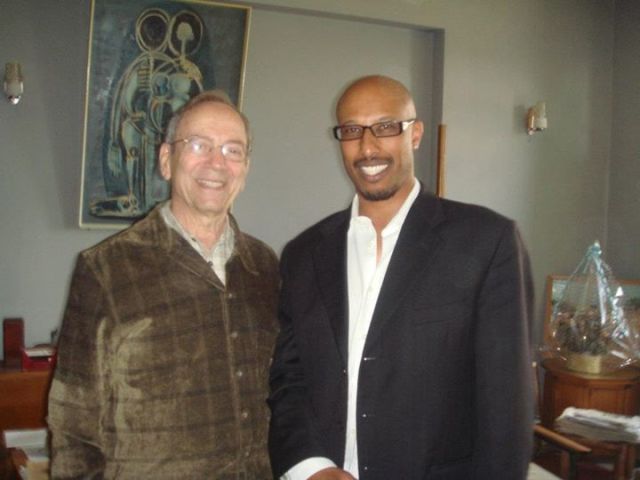
Dag Andargachew and Don Levine. (Courtesy photo)
I’ve known Don’s work for many years and had the pleasure of meeting him 15 years ago when he was in the Bay Area for a meeting. We kept in touch since then and got to hang out again in 2003 when he came back to California to visit an Ethiopian that was imprisoned. Afterwards we went to Yoga Mandala in Berkeley for their 1st anniversary yoga session which was my first ever yoga class!! After that day I was a regular student at that studio till I left the Bay Area and have been hooked on yoga ever since! Thank you Don!!!!
Fast forward a few years and I was living in Addis for a couple of years and had the honor to help Don with administrative staff – organizing meetings, meet and greet events etc. when he came to Ethiopia in Jan 2008, to meet with human rights activists & leaders as well as recently released journalists. I also had the privilege to organize a meeting for him with Gash Mesfin (Prof. Mesfin), who had also been recently released from prison. It was an awesome opportunity for me to sit amongst these two giants and listen-in to their conversation, debate and old stories.
I have driven with Gash Liben to Awasa to check out AYC’s overall progress as well as the setup of the dojo and saw him in action in his beloved Aikido.
It was a pleasure to be around Don and to see him interact with ease with the young, not so young, important officials/diplomats and not so important people attentively and with respect!
Interestingly I found out that my Dad was an undergrad student at AAU when Don first came to Ethiopia and was one of the people that taught him Amharic. I’m glad they got to hang out after so many years in Chicago when my Dad was visiting, and again in Addis when Don visited last.
Don is a true sensei in the whole sense of the word!!
From Mel Tewahade
Denver, Colorado
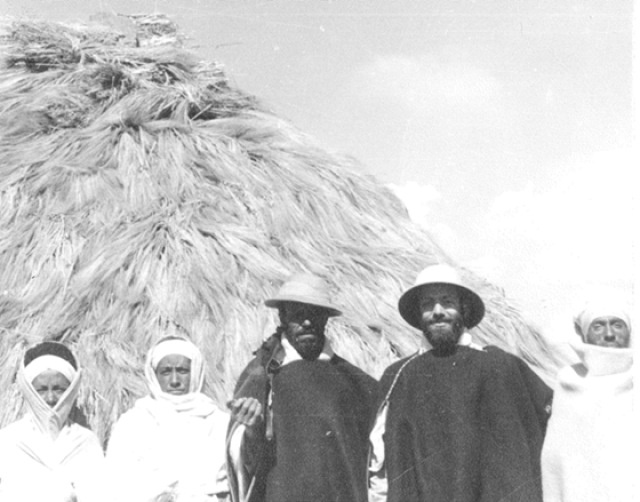
Don Levine (second from right) with Menze family in Amhara region of Ethiopia. (Courtesy photo)
I am blessed to have known Dr. Don N. Levine. The God that created heaven and earth is pleased in this Easter day, to receive his servant and our friend into his kingdom. May his writing and teaching touch many lives forever and ever. He has willingly accepted and loved being Ethiopian. He dedicated 55 years of his life studying, writing, teaching, advocating and praying for Ethiopia and Ethiopians. He encouraged all of us to dig deeper into the spirit of Menze and Shoa. He also showed us to live our lives with abundance. He reminded me that Queen of Sheba took gold and incense when she visited King Solomon in Jerusalem. He motivated us to develop our skill of negotiation that our ancestors had once mastered. He showed us how to express what we want with class and dignity using what our ancestors called Wax and Gold. He wanted to show Ethiopians not to be ashamed of our history and heritage. For that alone I am eternally grateful. Gashe Liben, as he is called by his Ethiopian name, We will continue your work and be true to ourselves. May you rest in peace.
From Elias Wondimu, Founder of TSEHAI Publishers
Los Angeles, California
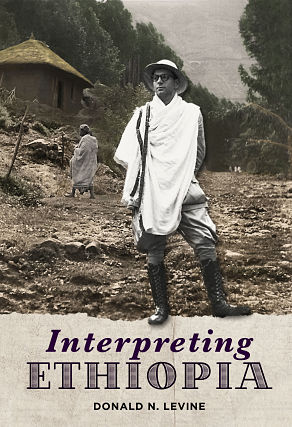
(Courtesy of Tsehai Publishers)
I was blessed enough to work with Gash Liben on several initiatives. To mention a few, he was an editorial advisor and author of TSEHAI Publishers, editorial board member and regular contributor of the International Journal of Ethiopian Studies, and a founding board member and senior scholar of the Ethiopian Institute for Nonviolence Education and Peace Studies, but most of all he was one of the few people who took time to answer any questions that I may have. For me, I lost a mentor, a major supporter, and a collaborator on all of my projects, and an author extraordinaire that I had the privilege of publishing his very last book (Interpreting Ethiopia) among other writings and his classic book: Wax and Gold.
The reaction of our people from across international borders is not due to one or few of his successful writings, but it is due to his life-long engagement with Ethiopia and his advocacy to her citizens’ dignity wherever they might be. What we lost today is not only an acclaimed scholar, but a dear friend of our people and a citizen of the world who cares deeply for its future.
From Professor Ayele Bekerie
Mekele, Ethiopia

Professor Donald Levine, the Ethiopianist Insider Remembered
It was June 2004 and the Honorary Doctorate recipients for the 2004 Addis Ababa University Commencement were assembled in the Office of the University’s President prior to our march to Genet Hall of the Sidist Kilo Campus where the Commencement ceremony took place. Among the recipients were Professor Donald Levine, the Late Professor Ali Mazrui and Professor Ephrem Isaac. I accompanied Professor Ali Mazrui to the event from the US. As we passed the Ras Mekonen Hall, Professor Levine looked up the door of the Hall and excitedly pointed the motto of the University posted at the top. He asked us if we know the meaning of the motto written in Ge’ez.
“Kulu Amekeru Wezesenaye Atsneu,” Professor Levine read the motto loud. He then quickly shared with us the meaning as if to free us from the instant question he posed to us. The motto, which translates to “Test everything that is said. Hold on to what is good,” was known to Professor Levine since his time as a Professor in the then Haile Selassie I University over fifty years ago. The motto became part of our conversation as we marched to Genet Hall. This anecdote typifies the nature and personality of Professor Levine and his extraordinary immersion into Ethiopian history, culture and society.
Professor Levine has always maintained an insider view, that is, he studied the language, assumed the position of being empathic with the culture and looked at the history and culture of the people Ethiopia from the inside out. Professor Levine was so intimate with the field of Ethiopian Studies that he was able to produce, as most agree, two outstanding and classical books on aspects of Ethiopian culture and society: Wax and Gold: Tradition and Innovation in Ethiopian Culture (1967) and Greater Ethiopia: The Evolution of Multiethnic Society (1974).
While Wax and Gold demonstrates the extent and depth of Professor Levine’s understanding of the nuances and complexities in Amharic language and the people who speak it, Greater Ethiopia expanded his scholarly reach within Ethiopian Studies and he ably argued in favor of Ethiopian multiethnic identity. These two books are by far widely quoted and referenced works in the field of Ethiopian Studies. Of course, Professor Levine wrote 5 books and a hundred journal articles. He successfully conducted scholarly works in Social Theory, Ethiopian Studies and the Martial Arts.
Professor Levine to many Ethiopians at home and abroad is known as Gashe Liben. This is an earned name. He earned the most gracious and affectionate title as a result of his remarkable accessibility to Ethiopians and their organizations, be it in social, cultural, educational and political settings. Gashe Liben prefaced many books authored by Ethiopian or Ethiopianist scholars. He contributed a great deal of articles for various journals in Ethiopian Studies. He organized international conferences and gave many media interviews. Gashe Liben helped several Ethiopians with their immigration cases.
More importantly, he always offered his advice, critical but balanced, with regard to current issues of Ethiopia. He always cautioned fellow Ethiopians to seize the moment and get engaged with the modernization of Ethiopia informed by tradition. He urged us to stop missing opportunities.
To me, Professor Levine’s seminal contribution in the field of Ethiopian Studies was his definition and articulation of what he calls the Ethiopian national epic. The professor argued that Kebre Negest is a national epic or mythology. A people with national epic, according to him, are a people with deep-rooted identity. A people confident of their identity are capable and willing to defend it. True, the mythology has to be expanded and should include the multiple mythologies of our people. But as a tribute to Professor Levine, we should all agree that our multiethnic identity is founded on a great epic of a great people.
From Kidist Tariku, Coordinator of Ethiopia’s Long Live the Girls program
Hawassa, Ethiopia
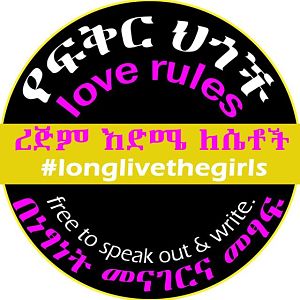
We are very sad to lose such a loving and intelligent man. His name and work always remains in our organization’s history. He is our founder; he will always be respected and loved for what he did for our community. May his soul rest in peace.
Long Live the Girls is a girls’ empowerment program through creative writing initiative founded in 2012 through a partnership between Action for Youth & Community Change & Break Arts: International Arts & Education Collaborative. Using creative writing to spark the imagination and see the world as if it could be otherwise, our model for engagement is unique — we create safe spaces for girls and women to speak and write with freedom, often using both political and poetic documents as the springboard for conversation, writing & performance.
From Dr. Theodore M. Vestal
Professor Emeritus, Oklahoma State University
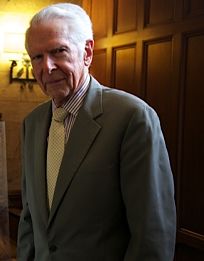
Ted Vestal. (Courtesy photo)
A Tribute to Professor Donald Levine
Ethiopia lost a stalwart friend, scholar and benefactor of the common good with the death of Professor Donald Levine this week in Chicago. His books about Ethiopia, especially Wax and Gold and Greater Ethiopia, are classical studies of the society, history, and culture of the Land of Prester John that so fascinated him. His many articles and public addresses about Ethiopia and the Horn of Africa leave a profound legacy for Ethiopians to ponder in the years to come. His thoughts about Ethiopia and prescriptions for its future were informed by his life as superbly trained American academic and public intellectual.
Don came to Chicago fresh out of high school and took advantage of the University of Chicago’s accelerated degree program begun during the university’s presidency of Robert Hutchins. In a seven year span from 1950 through 1957, he completed his B.A., M.A., and Ph.D. degrees in Sociology and went to Ethiopia to undertake field work. He resided in a rural Manz, an Amhara area and learned firsthand about the people and their ways. He studied Amharic and could converse with the subjects of his research. He then became a professor at Haile Selassie I University where he was teaching during the attempted coup in 1960. Levine joined the faculty at his alma mater, the University of Chicago, in 1962 and rose through the academic ranks to become Professor of Sociology and holder of the endowed Peter B. Ritzma chair. He also served as Dean of the College in the 1980s.
Levine’s teaching, speaking, and writing about Ethiopia reflected his grounding in the Chicago method of higher education characterized by independent thought and criticism that is created in the interest of the progress of society. In his continuing dialogue with and about Ethiopia, Don was open-minded and welcomed different points of view. In the process of doing this, he extended the bounds of understanding and wisdom about that ancient land. He epitomized the great professor of cultural studies: one who lived and worked among the people, took part in their festivals and celebrations, learned the language, and studied the literature and great books of their tradition. This “Dean of Ethiopianists” as I fondly called him, set a high bar for those who aspire to study and understand Ethiopia.
I met Don for the first time when we served as international election observers in Addis Ababa during the 1992 general elections. As a two-man team, among other things, we visited several precincts and noted some concerns about electoral activities that were included in the African-American Institute’s An Evaluation of the June 21, 1992 Elections in Ethiopia. We subsequently met in Ethiopian-related meetings all over the world, and he was a pleasure to be with. His devotion to searching for the truth about Ethiopia was inspirational. He will be missed.
From Chuck Schaefer
Valparaiso University, Indiana

(Courtesy photo)
Don Levine will be genuinely missed. He had a profound influence on Ethiopian studies. As his grad student, mention of his name open doors for me in Ethiopia even in the dark days of the Derg in the mid 1980s. Deans and/or Vice Ministers may not have always agreed with Don’s “greater Ethiopia” thesis, but they knew it and respected the deep sociological analysis that was at its core.
He was the father of American Ethiopianists. His rapacious appetite for all things involving Ethiopia meant that he served on dissertation committees of sociologists (of course), anthropologists, religious scholars, historians (including myself), linguists, political scientists and probably in a number of other disciplines both here and in Great Britain. To a degree he defined the Ethiopian character in the waining years of the Imperial era, and his “wax & gold” dichotomy ensured that all subsequent scholars had to reckon with Ethiopians as complex, conniving, compassionate peasants and peers alike.
Perhaps Don’s most enduring contribution was his deep understanding of social mobility up and down Ethiopia’s feudal ladder. This made writing a dissertation that would pass his inspection a difficult task, for the normal tropes like social classes had to bend and mend themselves to the realities of Ethiopia’s multiple paths to upward and, simultaneous, downward mobility. Even simple translation had to either be thrown out or appropriately nuanced. For Don, western univocal translation of texts was like paring down a Rembrandt painting to a charcoal sketch, for he was transfixed by the ambiguity inherent in Amharic, its texture, rich meanings and multiple depths of interpretation.
I dropped by Don’s house to discuss an issue related to the 1960 coup d’etat this past summer while Don and Andrew DeCort were editing proofs of “Interpreting Ethiopia.” To the last he was a scholar and a teacher.
I will miss him.
From Ashenaphy Fentie
Addis Ababa, Ethiopia
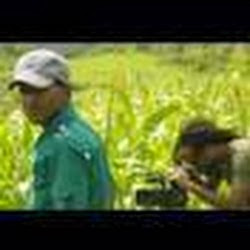
Ashenaphy Fentie. (Google Profile)
Donal N. Levine, a distinguished and great Ethiopianist of all time just passed away at the age of 83. He published important works such as, “Greater Ethiopia”, “Wax and Gold” and “Translating Ethiopia”. GREATER ETHIOPIA is his iconic book that I suggest as a must-read by every Ethiopian. As far as impartiality, evident history and the common past of the Horn are the concerns, I personally do not know any other single writer, both from Ethiopia and abroad that can be credited like Levine. He was much more patriotic to Ethiopia than even those Ethiopians, who think they are historians.
Those of you, who are not familiar with Levine and his works, please, read “Greater Ethiopia” and some of his journals on Ethiopian Studies, then you will find out for yourselves who this man really was. He actually was one of the very reasons that brought me into the study of history. I’m so so inspired by him, and very sad we lost him so soon. Regarding the history of Ethiopia and the Horn in general, I believe, no other single writer has ever taken us as far as Levine already did. His sociological studies of the Horn conducted in the late 1960s and his related conclusive theory of the study were incredibly proven to be accurate 40 years later, by the young and contemporary science of Population Genetics.
Rest in peace, our hero Donald Nathan Levine. Thank you for your irreplaceable and immortal contributions in the history and sociology of our beloved Ethiopia.
From Mulugeta Wodajo
Bethesda, Maryland
I had known Don for close to 60 years when we were both graduate students at Chicago and Columbia University, respectively. His two books on Ethiopia, Wax and Gold and Greater Ethiopia have been considered “must read” classics about our country’s society, history and culture ever since they were first published in the 1960s and ‘80s, respectively. He had recently completed another book for publication also on Ethiopia. He had shown me the finished manuscript of that book less than a year ago; hopefully it will see the light of day very soon. Additionally, he had previously published three major books and numerous articles in professional journals in his field of expertise, social anthropology, that were highly valued by experts in that field. He was a highly regarded professor of sociology at Chicago University until his retirement a few years ago and continued to do so from time to time, even after his retirement..
While doing field work for his first book, Wax and Gold, in Menz in the late 1950’s, he took on the name “Liben”, after a close Menzie friend he got to know well during his field work. Many of his Ethiopian friends, including myself, used to call him by that name until the very end. That pleased him a great deal as one could see from his reaction when called by that name. More recently, he also adopted the name of “Gebre Ethiopia” as he considered himself a genuine servant of our country.
I will greatly miss Don. He was one of the few friends left from those bygone years. He has now joined the great Ethiopian scholars – Ethiopian as well as foreigners – gone forever from our midst. May he rest in peace!
From Alemayehu Fentaw Weldemariam
Boston, Massachusetts
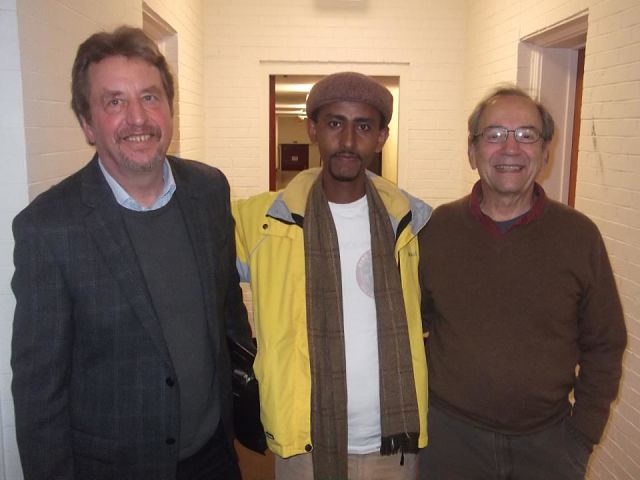
From right: Don, Alex and Hans. (Courtesy photo)
In memoriam: Donald Nathan Levine, 1931-2015
I have known Donald Levine at close range. He was a great friend, spiritual father, and mentor. I would have called him “an intellectual soulmate,” as he has referred to me in a note he wrote on his last book, Social Theory As Vocation (2015). To give you a sense of his generosity, when he learnt that I ended up jobless and without a means to support myself and my family in Addis Ababa after my return from Europe as a result of Jimma University’s decision to dismiss me from my teaching job in absentia, he extended his helping hand. He sent me money and books on several occasions whenever he finds people traveling to Addis Ababa. He was a frequent interlocutor from a distance and we used to exchange tones of emails between Addis Ababa where I was living and Chicago where he was based. Then I came to the US upon his invitation in October 2011. I audited one of his seminar courses on George Simmel at the University of Chicago, practiced aikido on the matt under him at the University of Chicago Dojo, arranged for me to audit Nathan Tarcov’s seminar course on Leo Strauss at the Committee on Social Thought, and generously vetted me to be part of one of the panels in the International Conference on George Simmel in 2011. It was also a great honor and pleasure to have helped him with two of his last books, Interpreting Ethiopia and Social Theory As Vocation, in which he has generously acknowledged my assistance.
Levine was a keen student of Ethiopian civilization for over half a century. His initial scholarly encounter with Ethiopia dates back to 1958 when he, as a young postdoctoral fellow, started his ethnographic work living among the “extraordinarily handsome people in a setting of great natural beauty and [an] [idyllic] climate” of North Shoa, Ethiopia, which “offers a gate through time to a state of being that is richly medieval.” (1965). That ethnographic fieldwork resulted in his Ethiopian classic Wax & Gold (1965). In the realm of Ethiopian studies, he is also most famous for his magisterial book Greater Ethiopia (1974), which has long been considered a major contribution to understanding the phenomena of ethnic diversity and national unity in Ethiopia. Shortly before his death, he managed to put together a collection of essays on Ethiopia, Interpreting Ethiopia (2014), in which he offers his observations on the ethos and worldview, education and literature, history, politics, and cross-national connections of the cultural area that he calls Greater Ethiopia. Levine’s oeuvre is the outcome of a serious scholarly odyssey through Ethiopian civilization over space and time. He has travelled extensively through every quarter of the cultural area that he fondly calls “Greater Ethiopia” –from Massawa to Jimma, from Addis to Aksum. His intellectual odyssey pushed the frontiers of Ethiopian Studies, extending the reach of his research from the culture of the Amhara, in Wax & Gold, to that of a multiethnic society, in Greater Ethiopia, from Aksum As a Seedbed Society to Reconsidering Ethiopian Nationhood, as necessitated by the advent of the internet and immigration.
In explaining what provided the bond that has continued to link him with Ethiopian over the years, he went on record, in one of his personal communication with me, saying: “the greatest thing in life is “aimless camaraderie,” as Frank H. Knight called it. Much of what has bonded me to Ethiopians over the years has been the joy of aimless camaraderie in their company.” Those of us who had the privilege to meet him in Chicago or Addis know what he means by the joy of the interaction in aimless camaraderie with fellow Ethiopians.
Besides his scholarly engagement with Ethiopia, Levine was also an activist. His more activistic engagement dates back to his critical 1961 article on Haile Sellassie’s authoritarianism, which cost him his teaching job at the Haile Selassie I University. He was an ardent advocate of freedom in Ethiopia. More often than not, he voiced his concerns for academic freedom, free press, free association, free and fair elections, and loyal opposition in Ethiopia. It was in the spirit of public service that he gave a testimony before the U.S. Congress on the human rights abuses of the Dergue in 1976, engaged himself in a critical analysis of the Addis Ababa University fiasco in 1993, gave a spirited acceptance speech in defense of academic freedom at the award of an honorary doctorate from Addis Ababa University in 2004, where he emphasied the traditional mission of AAU as a university by reciting the Geez motto: “Kulu Amekeru Wezesenaye Atsneu” (Examine everything, and hold fast to what is best). Indeed, the dialogic turn that he brought to bear upon sociology and Ethiopian studies has also oriented his activistic engagement. It has been his lifelong wish and prayer for Ethiopians of all generation and walks of life to transcend the limitations inherent in their cultures soda as to dissolve the either/or metazez wey meshefet (“obey or rebel”) mentality through dialogue.
In both his scholarly and activistic odysseys, what always strikes me as quite distinctive of Levine is the strength of his character. He was as much courageous in his scholarship as much as he was in his activism. In his activism, he never succumbed to fears of retribution. He criticized the incumbent as well as the opposition in an even-handed manner. In his scholarly pursuits, he refused to succumb to political correctness, which he once described to me in a personal communication as: “Political correctness is the hobgoblin of little minds. That’s the kind of statement that corrupts the search for truth, IMHO. The Janjero who committed human sacrifice can be glossed as culturally inferior to the Dorzes who created polyphonic music and beautiful weavings as central expressions of their cultures.”
Donald Levine is a towering figure in Chicago sociology and social thought in the same league as Robert Park, George Mead, Albion Small, John Dewey, Edward Shils, and Arnaldo Momigliano. Hi sociological oeuvre includes critical interpretations of Auguste Comte, Emile Durkheim, Max Weber, Talcott Parsons, Robert Merton, S.N. Eisenstadt, and above all Georg Simmel. In the realm of social theory, his work focused on bringing into fruitful dialogue, if not reunifying the sociological traditions and imaginations, in a book venture that he titles Visions of the Sociological Tradition (1995). One evening during my visit at the University of Chicago in November 2011, as we were walking to his home where he generously hosted me for the first week, he started telling me how sociology used to be as big as Humpty Dumpty and how it had a terribly great fall in the 1960s. And after Humpty Dumpty had that fateful fall and it broke into pieces, all sociologists and social theorists that came “couldn’t put Humpty Dumpty in his place again.” That was exactly what he wanted to do with his magisterial book Visions of the Sociological Tradition in which he wrote, “For most of its first century as an institutionalized discipline, the proponents of sociology envisioned it as a unified field. The vision was elusive and consensus hard to come by. Yet for all their profound differences about what sociology should be and do, its principal spokesmen —figures like Durkheim, Simmel, Weber, Park, and Parsons—agreed that sociology should be framed as a coherent enterprise demarcated by clear and defensible boundaries. The narratives constructed by Park and Burgess, Sorokin, Parsons, and others were part of the more general effort to justify’ such a unified vision.”(259)
In his Festschrift, Hans Joas and Charles Camic extol Levine’s achievements in the field of social theory as follows:
the idea that dialogue among different intellectual perspectives is a paramount cognitive and ethical objective in its own right, particularly in the context of the current postdisciplinary age—receives its fullest development at the hands of University of Chicago sociologist Donald N. Levine, whose extensive writings on the subject provide the point of departure for the twelve essays in this volume. As a distinguished theorist and historian of sociological thought, Donald Levine has been closely familiar with these pluralist currents within sociology throughout his career….
—
Related:
Donald Levine, sociologist and former dean of the College, 1931-2015 (UChicago News)
Friend of Ethiopia Don Levine Passed Away
Join the conversation on Twitter and Facebook.
